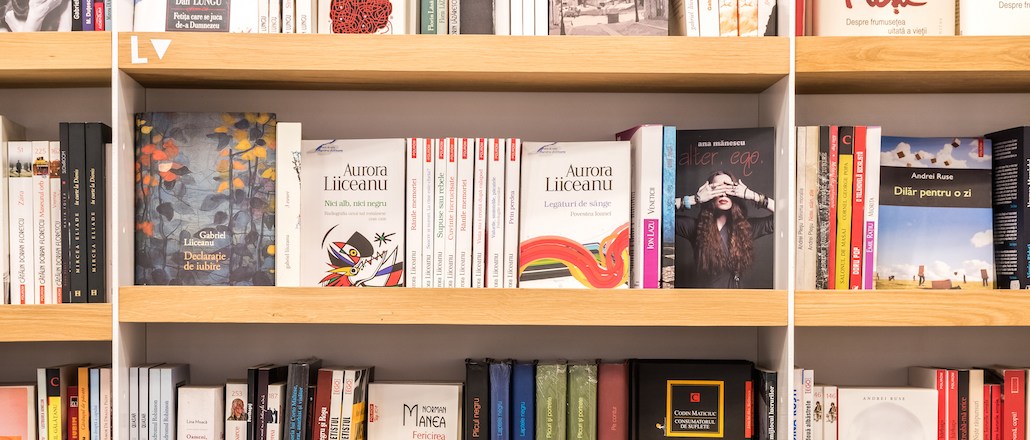Save 50% on a 3-month Digiday+ membership. Ends Dec 5.

It’s back-to-school season. In the spirit of continued education, we asked top editors what they are reading this fall. Here’s what they said:
 American History
American History
Cosmopolitan editor-in-chief Joanna Coles was inspired to pick up “Alexander Hamilton” by Ron Chernow after accompanying the author to the Broadway musical based on the work. The British editor said the show made her realize how little she knew about the American figure. “Hamilton seems such a contemporary character with wild ambitions, and yet he was tripped up by such stupidities,” she said. At 800 pages, it’s not a quick read but is a must for anyone looking to brush up on one of the nation’s founding fathers before he is replaced on the $10 bill. For those seeking a more modern history lesson, Coles recommends “My Life on the Road” by Gloria Steinem. The feminist icon’s memoir on becoming an activist includes humorous anecdotes and appearances from writers Saul Bellow and Gay Talese.
Music Appreciation 
Jessanne Collins, editor-in-chief of Mental Floss, suggests “Hunger Makes Me a Modern Girl,” the soon-to-be-released memoir of Carrie Brownstein (out Oct. 27). The book follows the musician-turned-actress through the feminist punk-rock movement of the ’90s, the rise of her band Sleater-Kinney and the experiences that informed her TV series “Portlandia.” “It’s full of fascinating, minute detail for Sleater-Kinney fans, but I also found it a relevant portrayal on the hard work that goes into living a creative life in general,” said Collins. She’s also a fan of Elizabeth Gilbert’s forthcoming “Big Magic: Creative Living Beyond Fear” (out Sept. 22).
 Philosophy
Philosophy
For lovers of “The Walking Dead,” “Jericho,” and for those who have a very long plane ride ahead, Hillary Frey, director of global news operations at Fusion, recommends “The Stand,” Stephen King’s “gajillion-page” novel about the world in a post-human-induced-apocalypse and the ultimate fight between good and evil. Perfect for those looking to refresh their perspective, Frey noticed major major differences in the story from the first time she read it at age 17. One example: “The female characters are way more at the mercy of the men than I’d remembered.”
English 
For those looking to brush up on their writing skills, Derek Thompson, senior editor at The Atlantic, promises you’ll be entertained with “The Elements of Eloquence” by Mark Forsyth. The book argues that style can win over substance, citing examples like Oscar Wilde (“Journalism is unreadable, and literature is not read.”) “It’s a short book for writing dorks who want to know about how to write daggers for sentences and master the music of language and the language of music,” said Thompson. He also recommends “Purity” by Jonathan Franzen, a personal favorite.
 World History
World History
Liz Vaccariello, editor-in-chief of Reader’s Digest, gives high marks to Antony Doerr’s “All The Light We Cannot See,” a story set in World War II that highlights the ways people try to be good to one another even in the most horrific circumstances. Vaccariello also recommends “Boys in the Boat” by Daniel James Brown, the story of nine working-class Americans who compete in the 1936 Berlin Olympics. “I love stories that deconstruct the components of greatness,” she said, adding that Brown wrote one of her favorite sentences this year: “All were merged into one smoothly working machine: they were, in fact, a poem of motion, a symphony of swinging blades.”
More in Media

What publishers are wishing for this holiday season: End AI scraping and determine AI-powered audience value
Publishers want a fair, structured, regulated AI environment and they also want to define what the next decade of audience metrics looks like.

Digiday+ Research Subscription Index 2025: Subscription strategies from Bloomberg, The New York Times, Vox and others
Digiday’s third annual Subscription Index examines and measures publishers’ subscription strategies to identify common approaches and key tactics among Bloomberg, The New York Times, Vox and others.

From lawsuits to lobbying: How publishers are fighting AI
We may be closing out 2025, but publishers aren’t retreating from the battle of AI search — some are escalating it, and they expect the fight to stretch deep into 2026.
Ad position: web_bfu


